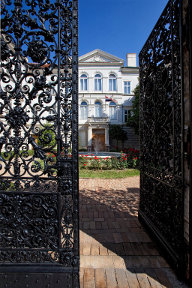ROLE OF INSTITUTIONS IN THE FORMATION OF PRE-MODERN AND MODERN CROATIAN IDENTITY
Abstract
Public institutions as social regulative systems present significant segment of the historiographic research. Since the (dis)continuity of public institutions’ development presents the basis for the formation of political identity, methodical approach to research and history of institutions in Croatian lands has important place in the historical perspective because of the geo-political status of Croatian lands whose political, cultural and economic development until the 20th century has been conditioned by their status within various political entities: Kingdom of Hungary, Habsburg Monarchy, Ottoman Empire, Republic of Venice, Republic of Dubrovnik. On the other hand, understanding of the development and transformation of specific public institutions (administrative/governing, legislative, judiciary, economic, political – including political audience and parties, cultural, educational, religious, health) and their interactions, interests, goals and directions is crucial for the understanding of development of society and the role of state as we know it today. Knowledge of institutional history also presents necessary precondition for all further historiographic research as it enables comprehension of individual or group public activity context. Only when understanding both micro and macro level of activity of public institutions, we are able to analyse changes in the various aspects of society in the turning points of its development.
Objective of this project is to intensify, organize and direct the research of public institutions in Croatian history that have so far been neglected. The research will be interdisciplinary and complex; specific institutions will not be considered in isolation or exclusively through relevant legal frameworks, but their functioning on the micro and macro level will be reconstructed as dynamic interaction of various factors, influences and interests. Research will follow short term and long term results of institutional practices and their development will be positioned within the wider context of the history of European institutions. The notion of institution will cover wide range of organized public activities:
-
legislative institutions (Croatian parliament),
-
executive institutions (governor (ban), Croatian Royal Council/office, Governing council, government, viceroy council),
-
local authorities (administrative institutions in counties and towns),
-
judiciary system transformations,
-
political public (political parties and media),
-
church institutions and impact of church elites on social, cultural, economic and political life,
-
education institutions and intellectual transfers,
-
economic institutions and developments,
-
health institutions and development of public health system,
-
cultural institutions and transfers.
Elaboration of general objective
History of institutions is an important sub-discipline of all national historiographies and one of fundamental historiographic researches. Most relevant for the research of Croatian institutions throughout history are the similar researches implemented in the countries of the former Habsburg Monarchy, as well as in the leading European countries in the field (Germany, England, French) that have been continuously running since the 19th century. The latest trends in these historiographies place much attention on the research of constitutional and institutional history through new methodological approaches. The researches of public institutions in Croatian historiography were only marginal resulting in the lack of knowledge on the role and activity of the highest state institutions (such as the Parliament). Furthermore, researches are fragmented and need to be conducted systematically and during a longer time period.
In the context of current researches in Austria and Hungary, and especially in the context of Croatia’s EU accession, it can be assumed that the Croatian institutional history will generate additional interests; especially historical development of state institutions that have continued to function until today and form a specific state and social framework. Therefore, it is important to assess the results of the former researches of Croatian institutional history, and to commence new and more comprehensive ones, as well as to analyse archive materials using more complex methodological approach.
Part of this project related to the history of educational systems and institutions is financed by the Croatian scientific foundation. You can visit project web-page on this link.

